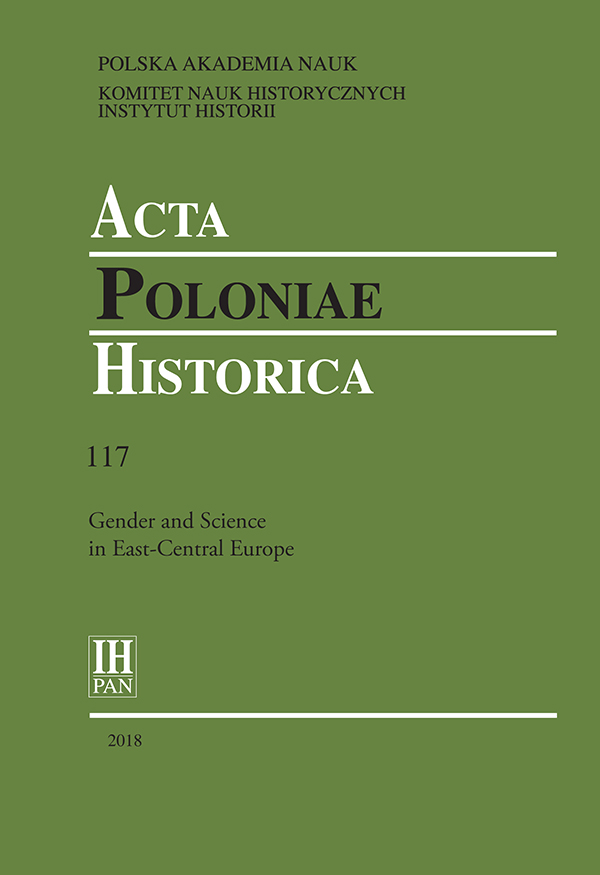Spaces of Knowledge and Gender Regimes: From Double Marginalization to a Gendered History of Knowledge in Central and Eastern Europe
DOI:
https://doi.org/10.12775/APH.2018.117.01Słowa kluczowe
area studies, decentring Europe, gender studies, history of knowledge, partial perspectiveAbstrakt
The article explores the heuristic potential of gender studies and area studies (especially those concerned with Central and Eastern Europe) and appeals for a decentring of research units such as ‘general history’ and ‘Europe’ within historiography. It criticises the often mechanical use of spatial categories that ignores the fabrication of spaces by area specialists, and the reification of gender identities within women’s and gender studies. It argues for a combination of gender and area sensitive research in order to evade the juxtaposition of constructivism vs. essentialism. History of knowledge and feminist theory of science are described as useful tools for such an approach.Bibliografia
Butler Judith, Gender Trouble. Feminism and the Subversion of Identity (New York et al., 1990).
Chakrabarty Dipesh, Provincializing Europe: Postcolonial Thought and Historical Difference (Princeton, 2000).
Dale Gareth, Miklóssy Katalin, and Segert Dieter (eds.), The Politics of East European Area Studies (London, 2016).
Haraway Donna, Simians, Cyborgs, and Women. The Reinvention of Nature (New York and London, 1991).
Hark Sabine, Dissidente Partizipation. Eine Diskursgeschichte des Feminismus (Frankfurt am Main, 2005).
Hassauer Friederike, Homo. Academica. Geschlechterkontrakte, Institution und die Verteilung des Wissens (Wien, 1994).
Kraft Claudia, Die Polin als Staatsbürgerin: Reformdebatten in der zweiten Hälfte des 18. Jahrhunderts (Leipzig, 2009).
Krzoska Markus, Lichy Kolja, and Rometsch Konstantin, ‘Jenseits von Ostmitteleuropa? Zur Aporie einer deutschen Nischenforschung’, Journal of Modern European History, xvi (2018), 40–63.
Massey Doreen, ‘Politics and Space/Time’, New Left Review, 196 (1992), 65–84.
Pechriggl Alice and Bidwell-Steiner Marlen (eds.), Brüche, Geschlecht. Gesellschaft. Gender Studies zwischen Ost und West (Wien, 2003).
Sarasin Philipp‚ ‘Was ist Wissensgeschichte?’, Internationales Archiv für Sozialgeschichte der deutschen Literatur, xxxvi, 1 (2011), 159–72.
Scott Joan Wallach‚ ‘Gender. A Useful Category of Historical Analysis’, American Historical Review, xci, 5 (1986), 1053–75.
Tötösy de Zepetnek Steven‚ ‘Configurations of Postcoloniality and National Identity: Inbetween Peripherality and Narratives of Change’, The Comparatist: Journal of the Southern Comparative Literature Association, xxiii (1999), 89–110.
Wolff Larry, Inventing Eastern Europe: the Map of Civilization on the Mind of the Enlightenment (Stanford, 1994).
Zarycki Tomasz, Ideologies of Eastness in Central and Eastern Europe (London, 2014).
Pobrania
Opublikowane
Jak cytować
Numer
Dział
Licencja
Title, logo and layout of journal are reserved trademarks of APH.Statystyki
Liczba wyświetleń i pobrań: 631
Liczba cytowań: 3



